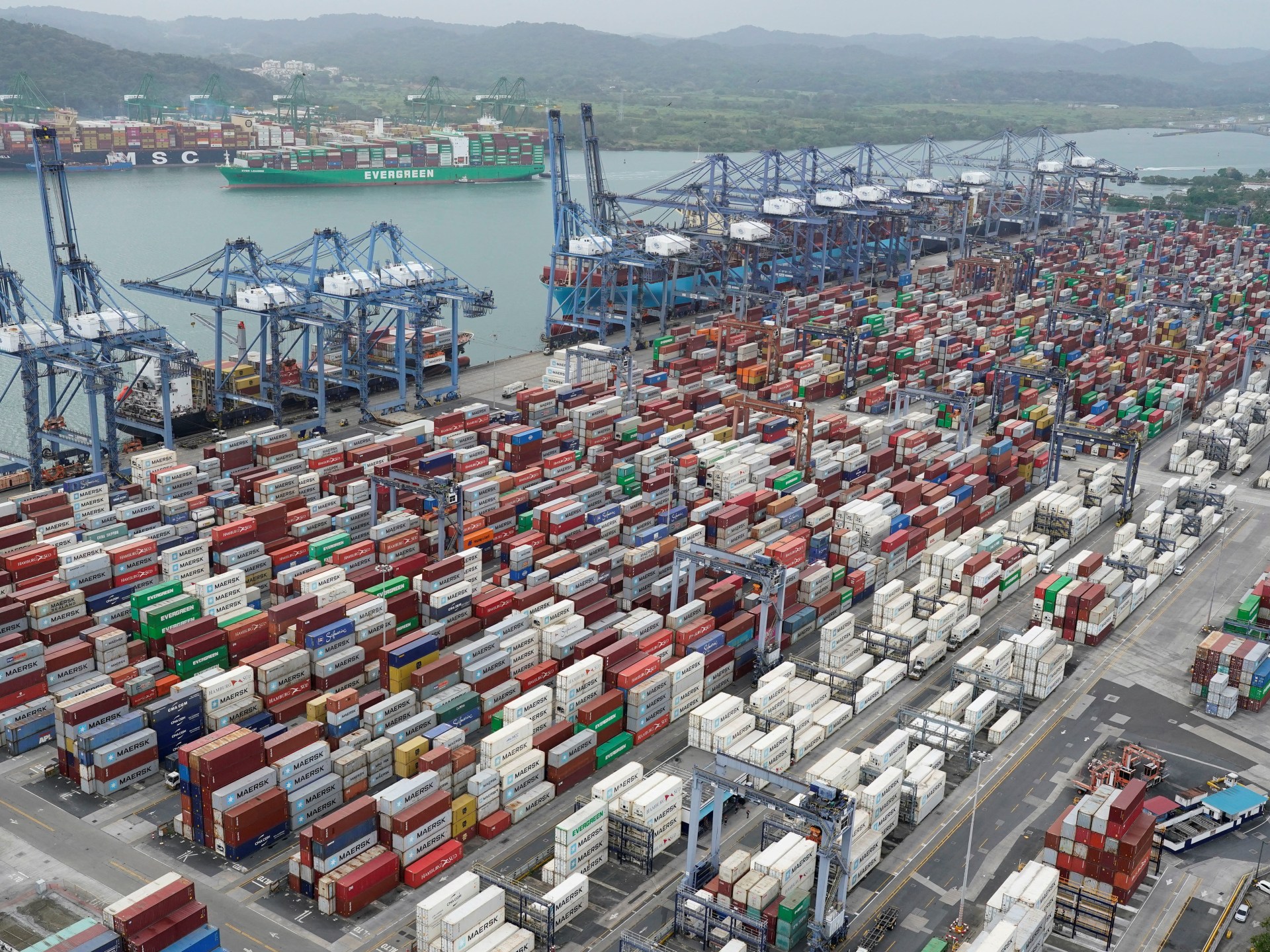South America
Panama Canal denies US claim of free passage for government vessels

Introduction: The Panama Canal Dispute Heats Up
The Panama Canal, one of the most critical waterways in the world, has become a focal point of escalating tensions between the United States and Panama. In recent weeks, the Panama Canal Authority (ACP), an autonomous agency under the Panamanian government, has pushed back against claims by the U.S. State Department that a deal was reached to allow American government vessels to transit the canal without paying tolls. This development comes amid heightened rhetoric from U.S. President Donald Trump, who has repeatedly threatened to take back control of the canal, a stance that has raised concerns in Panama and beyond.
The Panama Canal Authority’s Statement: No Deal Reached
On Wednesday, the Panama Canal Authority issued a firm denial of the U.S. State Department’s assertion that an agreement had been reached to waive transit fees for American government vessels. The ACP clarified that no changes had been made to the canal’s toll structure or transit rights, emphasizing that it retains full authority to set fees for all vessels passing through the canal. The statement directly addressed the U.S. claims, making it clear that while the ACP is open to dialogue regarding the transit of American wartime vessels, no formal agreement had been reached.
This move by the ACP appears to have heightened tensions between the two nations, as the U.S. had earlier suggested that Panama had agreed to the waiver, a claim that would have saved the U.S. government millions of dollars annually. The ACP’s denial raises questions about the accuracy of the U.S. State Department’s announcement and whether it was premised on informal discussions or misunderstandings.
Historical Context and Trump’s Threats
The Panama Canal, constructed by the United States in the early 20th century and handed back to Panama in 1999, remains a symbol of U.S. influence and engineering prowess. However, President Trump has reignited long-standing tensions over the canal’s management, accusing Panama of imposing excessive tolls and even suggesting that the U.S. could seize control of the waterway if a satisfactory agreement is not reached.
Trump’s rhetoric has been consistent since his election victory in November, with the president refusing to rule out the use of force to reclaim the canal. In his inaugural address, Trump vowed to “take back” the canal, a statement that has been met with defiance from Panamanian leaders. Panama’s President, Jose Raul Mulino, has dismissed Trump’s threats, asserting that the canal is and will remain under Panamanian sovereignty.
Despite the tough talk, the ACP has expressed willingness to engage in dialogue with U.S. authorities, particularly regarding the transit of wartime vessels. This suggests that while Panama is unwilling to compromise on its sovereignty, it remains open to negotiating specific arrangements that could benefit both nations.
Rubio’s Visit and the Implications of the U.S. Claims
The U.S. State Department’s announcement about the supposed fee waiver followed a visit to Panama by U.S. Secretary of State Marco Rubio. During his trip, Rubio hinted at concessions being made by Panama, which he claimed would benefit U.S. interests. The State Department subsequently took to social media to declare that U.S. government vessels could now transit the canal without paying fees, a claim that was quickly disputed by the ACP.
Rubio’s visit and the subsequent announcements have raised questions about the nature of the discussions between the two nations. While the U.S. appears eager to present the situation as a diplomatic victory, Panama has been swift to correct what it perceives as inaccuracies. This back-and-forth has added to the uncertainty surrounding the future of U.S.-Panama relations, particularly as they pertain to the canal.
China’s Role and the Broader Geopolitical Landscape
The dispute over the Panama Canal is not occurring in a vacuum. In recent years, China has emerged as a key player in the region, with significant investments in Panamanian infrastructure, including the canal’s ports. The Panama Ports Company, a subsidiary of the Hong Kong-based conglomerate CK Hutchison Holdings, has operated major ports near the canal since 1997.
President Trump has accused Panama of ceding control of the canal to China, a claim that both Panama and China have vehemently denied. Nonetheless, the U.S. has expressed growing concern over China’s increasing influence in the region, particularly through its Belt and Road Initiative, a sprawling infrastructure project aimed at connecting China with other parts of the world.
In response to these concerns, Panamanian President Jose Raul Mulino has announced plans to withdraw from China’s Belt and Road Initiative, a move that appears to align with U.S. interests. Additionally, Mulino has ordered an audit of the Panama Ports Company, citing concerns over its operations and the broader implications for regional security.
Conclusion: A Delicate Balancing Act
The latest developments in the Panama Canal dispute highlight the complex and often fraught nature of U.S.-Panama relations. While the ACP has made it clear that it is willing to engage in dialogue with the U.S. regarding specific issues, such as the transit of wartime vessels, it has also drawn a firm line in the sand regarding its sovereignty and the integrity of its toll system.
The U.S. State Department’s claim of a fee waiver for government vessels, and the ACP’s subsequent denial, have added another layer of tension to an already volatile situation. As the two nations navigate this challenging landscape, the broader geopolitical dynamics at play— particularly the rising influence of China in the region—cannot be ignored.
Ultimately, the outcome of this dispute will have far-reaching implications, not only for U.S.-Panama relations but also for global trade and security. Both nations will need to tread carefully to avoid exacerbating tensions while working towards a resolution that respects Panama’s sovereignty and addresses U.S. concerns. Whether through diplomacy, economic leverage, or other means, the path forward will require a delicate balancing act from both sides.











